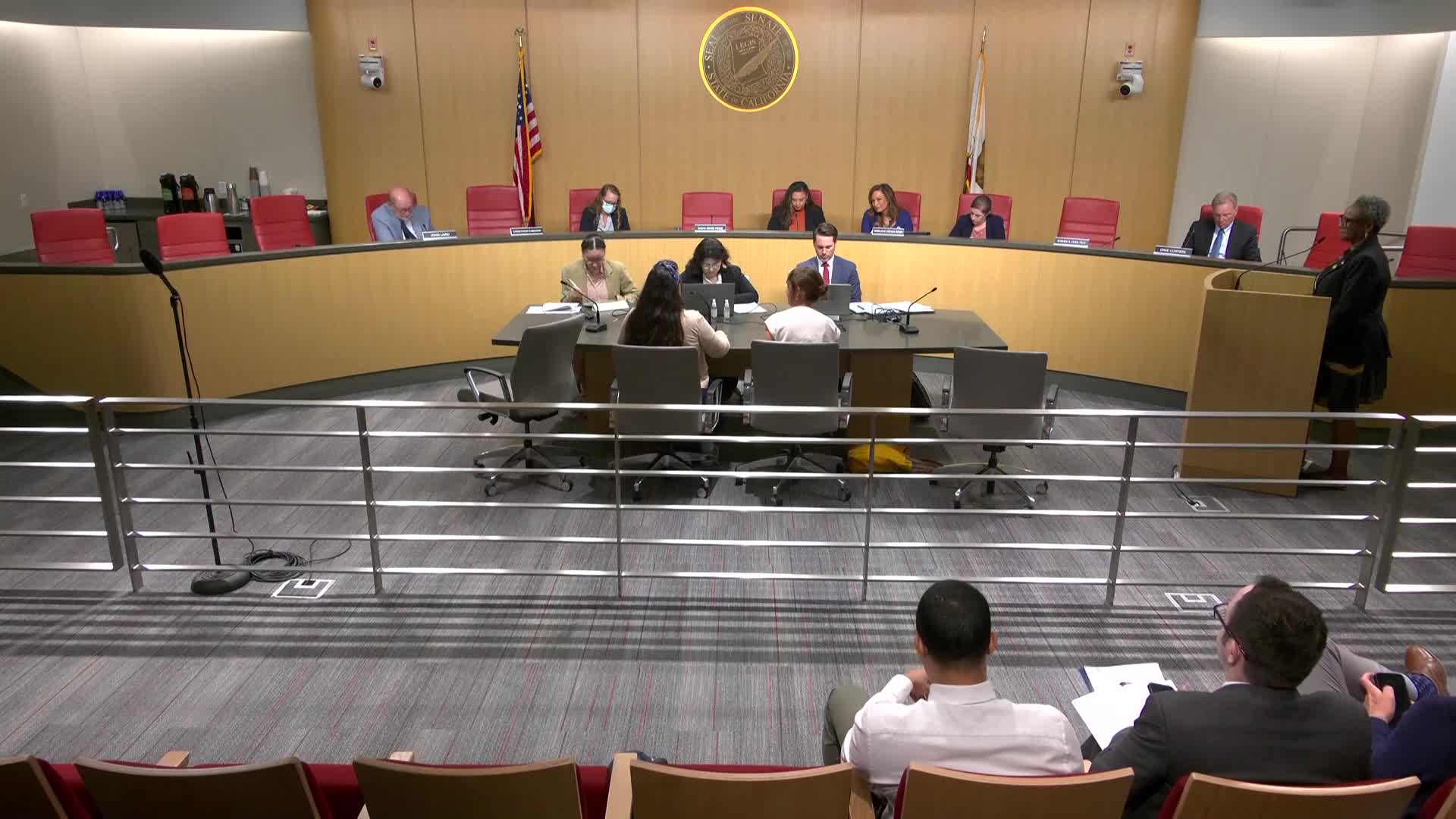Worker highlights Cal OSHA degree requirement barriers after Phillips 66 refinery closure
July 02, 2025 | California State Senate, Senate, Legislative, California
This article was created by AI summarizing key points discussed. AI makes mistakes, so for full details and context, please refer to the video of the full meeting. Please report any errors so we can fix them. Report an error »

A poignant plea for change echoed during the recent Senate Education Committee meeting, as a former refinery worker shared his struggle to transition into a safety management role at Cal OSHA. With the closure of Phillips 66's refinery, many workers, including the speaker, are facing uncertain futures.
The speaker highlighted a critical issue: Cal OSHA's requirement for a college engineering degree, which excludes seasoned industry professionals with years of practical experience. "My 17 years of expertise do not qualify me to even apply," he lamented, emphasizing the frustration felt by many skilled workers who are eager to contribute to statewide process safety management (PSM) but are hindered by educational barriers.
This discussion underscores a significant gap in California's workforce development strategy, particularly in the health and safety sector. The demanding schedules and mandatory overtime faced by industry workers make it nearly impossible for them to pursue further education, despite their extensive on-the-job training.
The speaker's heartfelt testimony calls for a reevaluation of qualification standards at Cal OSHA, advocating for a system that recognizes practical experience as a valuable asset. As the state grapples with workforce transitions, the need for inclusive policies that leverage the expertise of seasoned workers has never been more urgent. The committee's response to this issue could shape the future of safety management in California, ensuring that experienced professionals can play a vital role in protecting communities and enhancing workplace safety.
The speaker highlighted a critical issue: Cal OSHA's requirement for a college engineering degree, which excludes seasoned industry professionals with years of practical experience. "My 17 years of expertise do not qualify me to even apply," he lamented, emphasizing the frustration felt by many skilled workers who are eager to contribute to statewide process safety management (PSM) but are hindered by educational barriers.
This discussion underscores a significant gap in California's workforce development strategy, particularly in the health and safety sector. The demanding schedules and mandatory overtime faced by industry workers make it nearly impossible for them to pursue further education, despite their extensive on-the-job training.
The speaker's heartfelt testimony calls for a reevaluation of qualification standards at Cal OSHA, advocating for a system that recognizes practical experience as a valuable asset. As the state grapples with workforce transitions, the need for inclusive policies that leverage the expertise of seasoned workers has never been more urgent. The committee's response to this issue could shape the future of safety management in California, ensuring that experienced professionals can play a vital role in protecting communities and enhancing workplace safety.
View full meeting
This article is based on a recent meeting—watch the full video and explore the complete transcript for deeper insights into the discussion.
View full meeting
